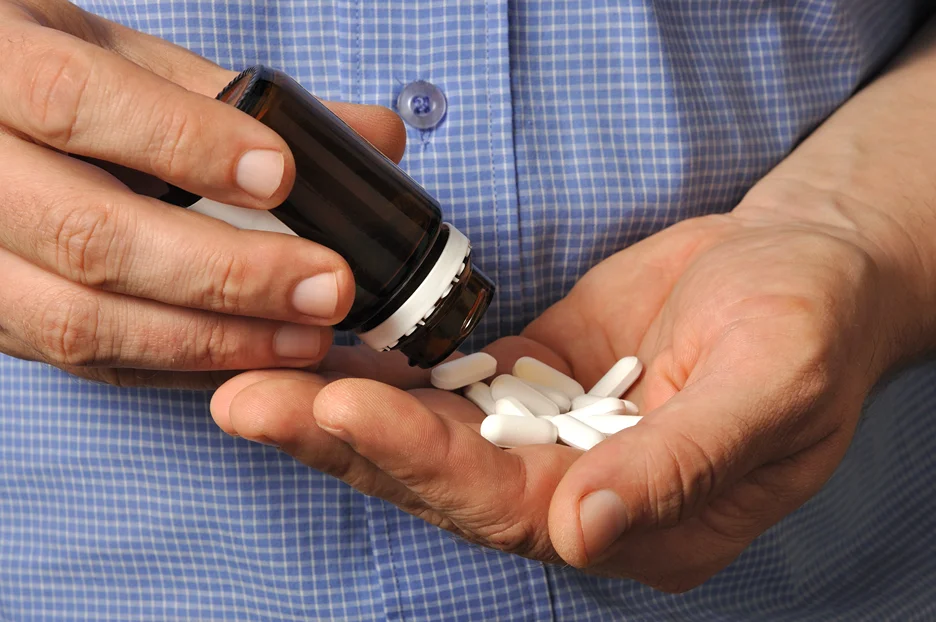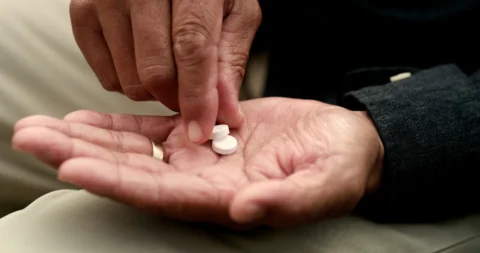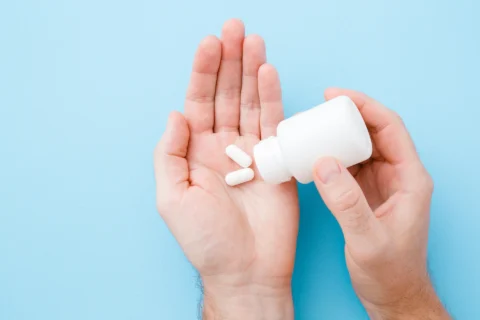A Guide to Clomiphene Citrate for Men
Clomiphene citrate, widely recognized under the brand name Clomid, has been a cornerstone in treating female infertility since the 1960s.
In recent times, it has also emerged as a popular off-label choice for addressing male infertility and low testosterone levels. Despite its increasing use, clomiphene citrate is not FDA-approved for men, raising questions about its effectiveness and safety in this demographic.
This guide examines using clomiphene citrate for low sperm count, testosterone, and male infertility. It covers its action, evidence, side effects, and alternative treatments.
Understanding Clomiphene Citrate: A Potential Role in Male Fertility and Testosterone Regulation

Role in Hormonal Regulation
Clomiphene citrate, a vital medication in the selective estrogen receptor modulators (SERMs) class, plays a unique role in hormonal regulation. Its primary action is to block estrogen receptors at two critical sites: the hypothalamus and the pituitary gland.
This strategic blockade disrupts the normal feedback loop where estrogen inhibits the release of follicle-stimulating hormone (FSH) and luteinizing hormone (LH).
By interrupting this negative feedback, clomiphene citrate triggers a notable increase in LH and FSH secretion from the pituitary gland.
This is where its dual action becomes pivotal.
Stimulating Testosterone Production and Sperm Production
The heightened levels of LH directly stimulate the Leydig cells in the testes, prompting them to produce more testosterone. Simultaneously, the surge in FSH works on the Sertoli cells, enhancing sperm production.
This dual mechanism is why clomiphene citrate is often used to treat men with low testosterone levels or impaired spermatogenesis.
By elevating FSH and LH, clomiphene citrate aims not only to boost testosterone levels but also to improve overall fertility, offering a promising solution for men facing these challenges.
Is Clomiphene Citrate Effective for Male Infertility?
Several studies have investigated the efficacy of clomiphene citrate in men with low sperm counts or unexplained infertility. The findings on improvements in sperm parameters like count, motility, and morphology have been mixed.
A meta-analysis study combined data from three randomized controlled trials using 50 mg/day of clomiphene citrate in men with infertility. The results showed a statistically significant increase in sperm concentration and total sperm count after treatment. However, there was no improvement in sperm motility.
Regarding pregnancy rates, the evidence is inconclusive. While some studies reported higher pregnancy rates in couples where the man took clomiphene, others showed no difference compared to controls. More research is still needed to establish whether clomiphene citrate definitively improves fertility outcomes.
Based on current evidence, your provider may recommend clomiphene as an option for men with low sperm counts. It may help boost sperm production enough to make intercourse or intrauterine insemination reasonable fertility treatment options. However, its ability to increase the probability of pregnancy is still uncertain.
Does Clomiphene Citrate Increase Testosterone Levels?

Multiple studies have demonstrated that clomiphene citrate can effectively increase testosterone levels in men with hypogonadism or low testosterone.
Across several clinical trials, doses of 25-50 mg per day taken for at least 3 months consistently raised testosterone into the normal range in most men. The increases seen with clomiphene were similar to those seen with testosterone gels and injections.
Therefore, for men who have low testosterone but want to preserve natural testicular function, clomiphene citrate represents an attractive alternative to standard testosterone therapy. However, regular monitoring of testosterone levels is still recommended to ensure they do not become too high while on treatment.
What Are the Potential Side Effects of Clomiphene Citrate in Men?
Clomiphene citrate has been studied extensively in women, with a well-established safety profile. However, there are comparatively fewer data on its side effects in men. Some possible adverse effects include:
- Hot flashes
- Headaches
- Visual changes like blurred vision
- Mood changes like irritability or depression
- Breast tenderness or enlargement (gynecomastia)
- Testicular pain or swelling
- Nausea, vomiting, diarrhea
- Weight gain
These side effects are generally mild and resolve once the medication is stopped. Only a small percentage of men experience persistent or severe reactions. But it is still important to monitor patients starting clomiphene treatment closely and adjust dosage at the first signs of intolerance.
There are also some concerns about potential risks with long-term clomiphene therapy in men:
- Increased risk of cardiovascular events
- Negative effects on cholesterol levels
- Prostate abnormalities
- Permanent testicular damage
However, large studies evaluating these safety issues over many years of treatment are lacking. We cannot rule out the possibility of rare side effects emerging, which is why judicious use and active surveillance are recommended.
How Does Clomiphene Compare to Other Therapies for Low Testosterone and Infertility?
For men with hypogonadism, clomiphene offers comparable increases in testosterone to standard testosterone replacement. The major advantage is in preserving natural hormone production instead of suppressing it.
However, some men may prefer the convenience of testosterone gels, patches, or injections. Others may not respond adequately to clomiphene treatment alone. In those cases, combination therapy can be considered too.
Regarding male infertility, other medical options include gonadotropin medications like human chorionic gonadotropin (hCG). These directly stimulate the testes much like LH rather than acting at the hypothalamic-pituitary level.
Surgeries like varicocele repair and procedures like sperm extraction for IVF are also sometimes undertaken. Cost, invasiveness, and feasibility must be weighed against potential benefits.
Ultimately, clomiphene presents a physiologic first-line pharmacotherapy that can address both low testosterone and sperm production issues when they occur together. But alternative treatments may hold advantages in specific patient scenarios.
Current Guidelines for Clomiphene Use in Men
Clomiphene citrate is FDA-approved only for treating ovulatory dysfunction in women. However, professional societies like the American Urological Association acknowledge its off-label use for male hypogonadism and infertility.
In 2018, the AUA published clinical guidelines stating that clomiphene therapy can be offered to men seeking to preserve fertility. But they stopped short of endorsing it as equivalent to standard testosterone therapy due to a lack of long-term safety data.
A study also suggested that clomiphene may be used as an alternative to testosterone. But again they cited the need for more research before it is accepted as a first-line agent.
Is Clomiphene Easily Accessible for Off-Label Use in Men?
Since clomiphene is only FDA approved for women, obtaining it for off-label use in men may present challenges in some cases.
Many insurance plans still consider this an “experimental” indication and may not cover clomiphene for men. Out-of-pocket costs can become expensive especially for long-term treatment. Some physicians also simply refuse to prescribe it without an official FDA approval.
However, the demand from patients and ongoing research into efficacy has led many major insurance companies to cover clomiphene for male indications. With a prior authorization, most men can now access the medication without excessive financial burden. But navigating administrative protocols first may be required.
Online telemedicine platforms focusing on men’s health also frequently include clomiphene as part of their treatment offerings for hypogonadism. This expands access beyond traditional brick-and-mortar healthcare settings.
Conclusion: Should Men Consider Trying Clomiphene Treatment?

Clomiphene citrate presents a compelling option for some men struggling with infertility or low testosterone production. While not a perfect treatment by any means, it aims to address the root hormonal issues underlying these conditions.
However, expectations must be tempered until larger and longer studies clarify unresolved questions surrounding efficacy and safety. Appropriate patient selection and monitoring are also crucial to reducing side effects and optimizing results.
The decision to use clomiphene for off-label male conditions should primarily be made between patients and their physicians. An honest risk/benefit discussion is advised, considering treatment goals, medical history, and alternative options.
While not yet a standard of care, clomiphene for men holds promise. Further research in coming years will hopefully elucidate which patients stand to benefit the most from this unique therapy.







